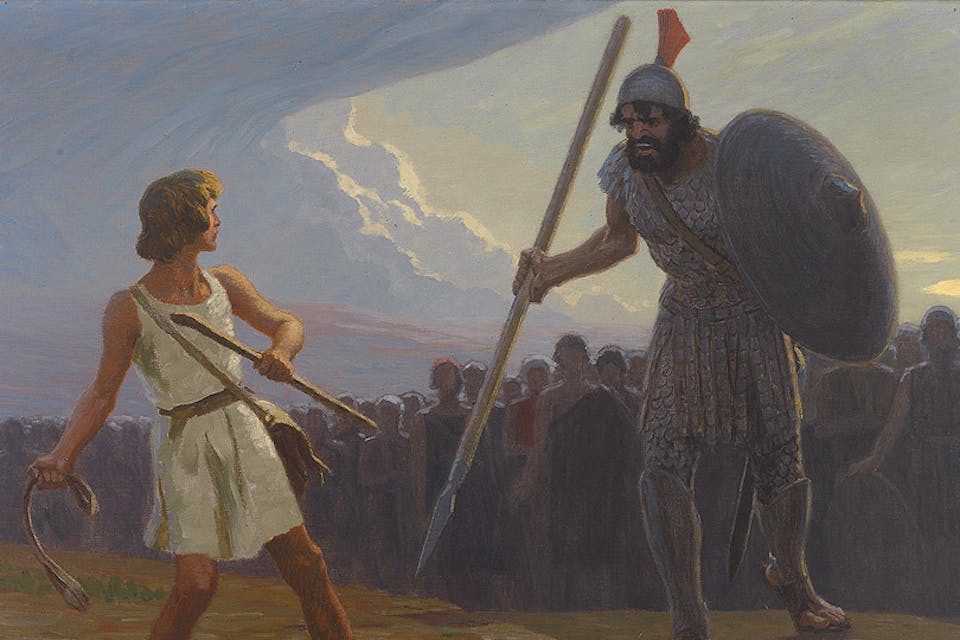
February 4, 2016
David’s Secret Weapon
The real message of the battle with Goliath is not that the underdog wins, but that things are not always as they are seen.
David’s battle with Goliath is among the Hebrew Bible’s best known stories. Even in 21st-century America, where biblical references no longer inform much speech or writing, the image of the scrappy young shepherd defeating the lumbering Philistine giant has not lost its grip—perhaps because of the deep-seated American fondness for underdogs.
But this biblical episode, which occurs about midway through the first book of Samuel, is more than an exciting tale. It marks the first public appearance of David, founder of the dynasty that will rule Judea until its destruction and one of ancient literature’s most complex and fascinating characters. By reading the story in its context, we can better grasp the message it conveys. Among other distinctions, that message is intriguingly different from the one in the book of Exodus, now being read as part of the annual Torah cycle in synagogues around the world. It also has nothing to do with David-as-underdog, let alone with the inverse, anti-Israel message being purveyed by supporters of the Middle East’s latest claimants to that title.
The story of David and Goliath, one element in a larger narrative about David and his predecessor, King Saul, marks the climax of David’s transition from youthful shepherd to valiant warrior and eventual claimant of the throne. The narrative begins with the Israelite people’s approach to the aging Samuel, who has served as prophet and judge of Israel for most of his life, demanding that he appoint a king to rule over them. Reluctantly acquiescing, Samuel chooses Saul, who appears from the get-go to possess all of the appropriate qualities: the son of “a mighty man of valor, . . . the most handsome of the children of Israel, taller than those around him from his shoulder and upward” (I Samuel 9:1–2). At a public assembly, his majesty visible to all, the people happily accept him as their ruler.